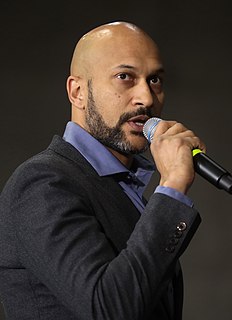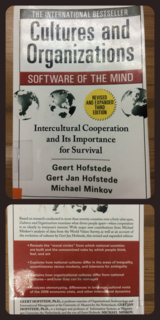A Quote by Gloria E. Anzaldúa
Like all people, we perceive the version of reality that our culture communicates. Like others having or living in more than one culture, we get multiple, often opposing messages. The coming together of two self-consistent but habitually incomparable frames of reference causes un choque, a cultural collision.
Related Quotes
I realized that we're now at a point of self-reference with the Internet culture that there's almost no there left, you know? It's important to make new things. It's important to make culture, rather than simply reference it. I love a good cultural reference, and it's one of the great joys in my life, but it has to all be in balance with the core job, which is to make something new. And that sort of brings me around to why I started talking about my fondness for marijuana.
The language of the culture also reflects the stories of the culture. One word or simple phrasal labels often describe the story adequately enough in what we have termed culturally common stories. To some extent, the stories of a culture are observable by inspecting the vocabulary of that culture. Often entire stories are embodied in one very culture-specific word. The story words unique to a culture reveal cultural differences.
The shaman is a person who is able to transcend the dimensional confines of cultural existence. They know more than the people they serve. The people they serve are like children within the game of culture. Only the shaman knows that culture is a game. Everyone else takes it seriously. That's how he can do his magic.
We are in the process of creating what deserves to be called the idiot culture. Not an idiot sub-culture, which every society has bubbling beneath the surface and which can provide harmless fun; but the culture itself. For the first time, the weird and the stupid and the coarse are becoming our cultural norm, even our cultural ideal.
A culture-bearing book, like a mule, bears the culture on its back. No one should sit down to write one deliberately. Culture-bearing books appear almost accidentally, like a sudden surge in the stock market. There are books of high quality that are a part of the culture, but that is not the same. They are a part of it. They aren't carrying it anywhere. They may talk about insanity sympathetically, for example, because that's the standard cultural attitude. But they don't carry any suggestion that insanity might be something other than sickness or degeneracy.
The really interesting moment will be when you have a critical mass of people engaging through the networks, more than through the press and TV. When that happens, the culture of politics has to change, moving away from controlled one-way messages towards a political culture that is more questioning.
I think that we in the West expect people to adapt to our culture very, very quickly when they come to our country. But when we go over to someone else's, I don't think we are willing to meet them halfway like we expect them to meet us. I think having cultural sensitivity is a lot more important than we realize.





































